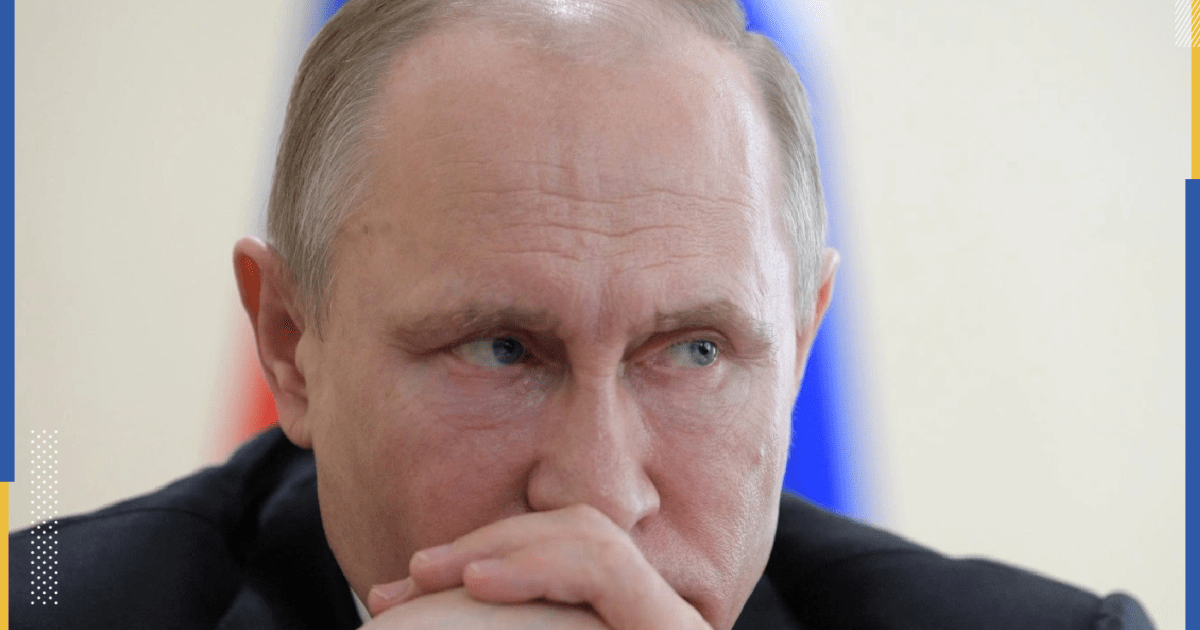The American magazine Foreign Policy published an article in which its writer Tatiana Stanovaya said that one of the reasons why it is difficult to understand Russian intentions, and what is at stake in the Ukraine war, is due to the great difference between how foreign observers see events and how the Kremlin sees them.
For Stanovaya (non-resident scholar at the Carnegie Endowment for International Peace), things that seem obvious to some — such as Russia’s inability to achieve a military victory — are viewed quite differently in Moscow, and the truth is that most of today’s debate about how to help Ukraine win the battlefield, forcing Kyiv to make concessions, or allowing Russian President Vladimir Putin to save face;
It does not have much in common with reality.
Accordingly, the writer believes that there are 5 common assumptions that should be debunked about Putin's perception of this war, and that the West needs to look at the situation differently if it wants to be more effective in its approach and reduce the risks of escalation.
Assumption 1: Putin knows he's losing
The writer says that this assumption stems from the mistaken idea that the main goal of Russia is to control large parts of Ukraine;
Thus when the Russian army does poorly, or fails to advance, or even retreat;
This amounts to failure.
However - as the writer says - Putin's main goals in this war were never to control parts of the land. Rather, he wants to destroy Ukraine in what he calls an "anti-Russian project", and prevent the West from using Ukrainian lands as a bridge for anti-Russian geopolitical activities;
Therefore, Russia does not see itself as a failure.
To achieve these goals, Russia needs to maintain its military presence on Ukrainian soil and continue to attack its infrastructure.
Second Assumption: Help Putin
The West must find a way to help Putin save face;
Thus reducing the risk of further escalation, possibly nuclear.
However, the writer sees the error of this assumption. Even if Ukraine fulfills all of Russia’s demands, it will not end that conflict, and from a geopolitical point of view, Russia itself sees that it is waging a war against the West on Ukrainian soil.
In the Kremlin, Ukraine is seen as an anti-Russian weapon in the hands of the West.
For Putin, this war is not between Russia and Ukraine, and the Ukrainian leadership is not an independent actor, but a Western tool that must be neutralized.
The Western dilemma, of doubling support for Ukraine because Putin is losing or to please him because he is desperate and dangerous;
Basically misleading.
The third assumption: Putin does not lose only militarily
This assumption says that Putin is losing not only militarily, but also domestically, and the political situation in Russia may cause him to face a coup soon.
The author believes that the opposite is true, at least for the time being;
The Russian elite has become deeply concerned about how to ensure political stability and avoid protests, viewing Putin as the only leader capable of consolidating the political order and preventing chaos.
The elite, she said, is politically impotent, frightened, and weak, and to take a step against Putin today is tantamount to suicide unless Putin begins losing his ability to rule (physically or mentally).
Assumption four: Putin is afraid of protests
The truth - as the writer sees - is that Putin is more afraid of the pro-war protests, and the general mood can push an escalation, which leads Putin to be more hard-line and assertive, even if this is the result of the Kremlin's propaganda itself.
She added that whatever happens to Putin, the world will have to deal with this general aggression and the anti-Western and liberal convictions that make Russia problematic for the West.
Assumption 5: Putin has been disappointed
According to this assumption, the Russian president became deeply disappointed in his entourage, and agreed to the criminal prosecution of high-ranking officials.
The writer refuted most of what was said in this assumption that they are rumors that should be viewed with great skepticism, because none of them have been confirmed, and it is possible that Putin is upset and frustrated with his employees, but this is not his method of purge his inner circle unless serious crimes are committed.
Stanovaya concluded that all of this means that the Western dilemma, of doubling support for Ukraine because Putin is losing or to please him because he is desperate and dangerous;
Basically misleading.
There can be only two possible outcomes: Either the West changes its attitude toward Russia and takes Russian concerns seriously, or the Putin regime collapses and Russia's geopolitical ambitions decline.

